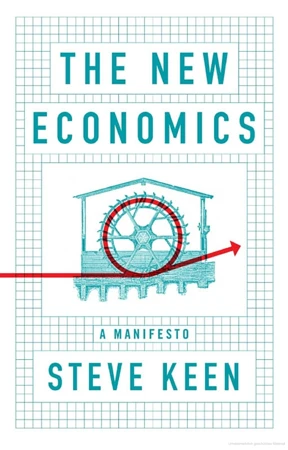The New Economics – A Manifesto

Blurb
In 1517, Martin Luther nailed his 95 theses to the wall of Wittenberg church. He argued that the Church’s internally consistent but absurd doctrines had pickled into a dogmatic structure of untruth. It was time for a Reformation. Half a millennium later, Steve Keen argues that economics needs its own Reformation. In Debunking Economics, he eviscerated an intellectual church – neoclassical economics – that systematically ignores its own empirical untruths and logical fallacies, and yet is still mysteriously worshipped by its scholarly high priests. In this book, he presents his Reformation: a New Economics, which tackles serious issues that today's economic priesthood ignores, such as money, energy and ecological sustainability. It gives us hope that we can save our economies from collapse and the planet from ecological catastrophe. Performing this task with his usual panache and wit, Steve Keen’s new book is unmissable to anyone who has noticed that the economics Emperor is naked and would like him to put on some clothes.
Book summary
Having dissected what's supposedly wrong with contemporary macroeconomics, Steve Keen, on the leading critics of the mainstream of our times and distinguished economist himself, goes on to present his idea of a New Economics: What premises it should build on, what methods it should use, and yes, what purpose it should serve.

